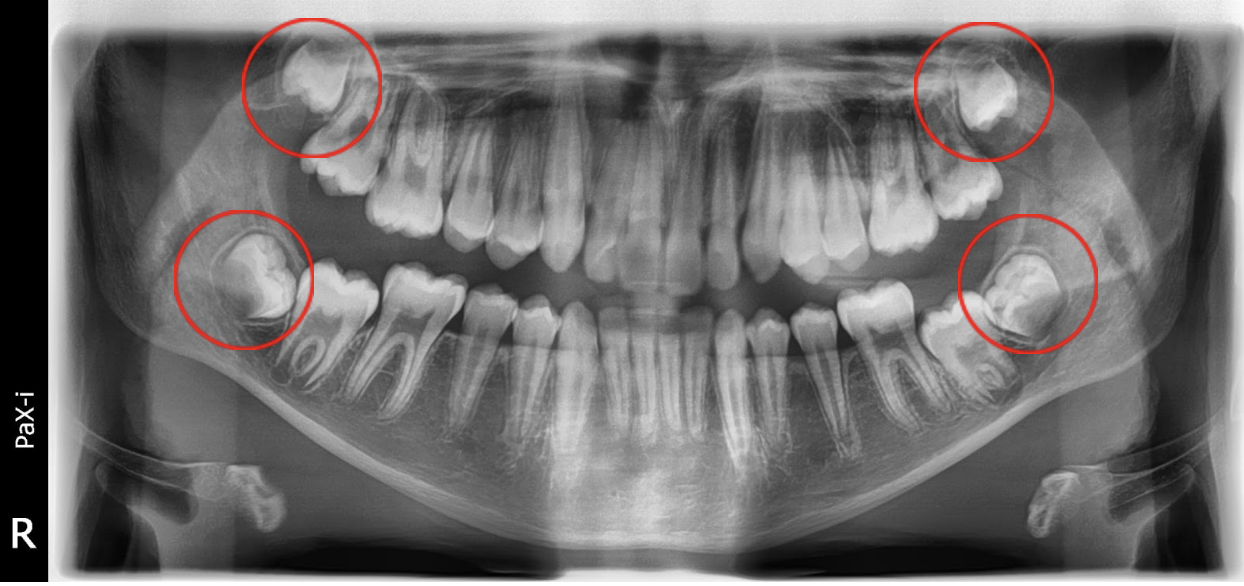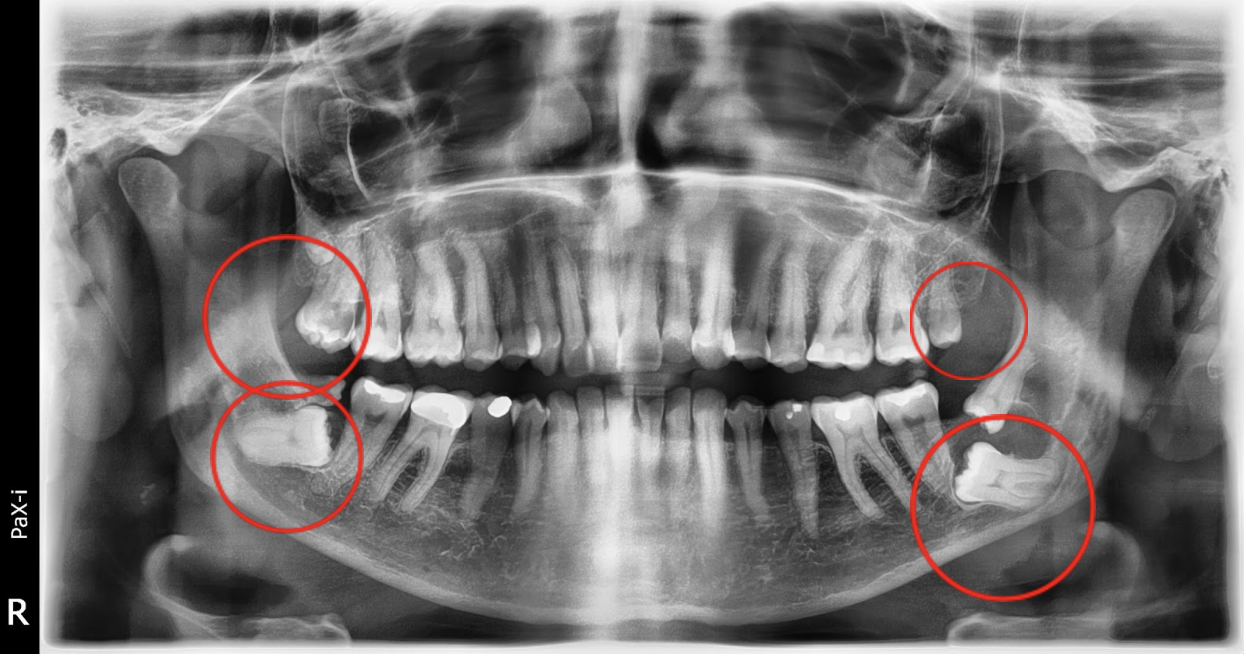Words on Wisdom by Dr. Jimmy Lutz
Downtown Dental Patient: “My wisdom teeth don’t bother me. Should I have them removed?
Dr. Jimmy: “Maybe”
What is it with wisdom teeth? What’s their purpose? What happens if you just leave them? Why are they called wisdom teeth? I have one patient with 7 wisdom teeth. Though she seems like a bright lady, I’m confident it has nothing to do with her wisdom teeth. Oh, and by the way, I’ll also set the record straight on whether wisdom teeth can cause all the other teeth to shift.
On almost a daily basis, I end up talking with patients about whether it’s better to keep their wisdom teeth or take them out. Some key factors in these conversations include their position, the age of the patient and the risk or probability the tooth will cause a problem long-term. Not all wisdom teeth are created equal! They come in a wide variety of positions, shapes and sizes. They must be assessed on an individual basis. Just because the neighbor got his wisdom teeth out when he was 16 years old and had a funny video to share doesn’t mean your child should do the same. In fact, they may not even have any wisdom teeth!
Why “Wisdom”?
Wisdom teeth begin developing in the jaw anywhere from 10-14 years of age, but do not fully form or erupt until late teens or early twenties. They don’t come into the mouth until you’ve reached adulthood and are a little wiser, hence the name.
To track a child’s growth and development, including the development of wisdom teeth, we take a panoramic x-ray, or “pano”.
Here’s a pano of a 12 year old showing wisdom teeth beginning to develop.

Here’s a pano of a 60 year old who is now having pain associated with wisdom teeth.

Keep or Remove?
Some people have a big enough jaw for the wisdom teeth to come in and even be in a good enough position to be useful in chewing. In that case, it’s okay to leave them alone as long as two things occur.
- Good oral hygiene: wisdom teeth are so far back in the mouth that diligent brushing and flossing is a must to prevent cavities or gum infections. I often recommend a good electric toothbrush for every patient that plans on keeping their wisdom teeth.
- It needs a pair: Your teeth work in pairs. If a tooth doesn’t have an opposing tooth to contact together it will start a process called “supraeruption”. It will continue to erupt, or actively come into the mouth, resulting in a poor position. This poor position can lead to cheek biting or a food and plaque trap leading to gum infections and cavities on the teeth next to it.
For the majority of people however, wisdom teeth can end up being very problematic for several reasons. The most common problems we see are cavities and gum infections. Wisdom teeth tend to be very hard to brush and keep clean due to being so far back in the mouth. This can lead to a cavity on the wisdom tooth itself and possibly the tooth in front of it. This will eventually cause pain, possible infection and susceptibility to jaw bone loss. If that risk is there, it’s much better to address it preventatively in the late teenage years compared to later on in life. We tend to have other health problems later in life that can cause complications and we have a harder time healing. Remember, we see these complications with adults on a daily basis. So, if your dentist recommends you or your teenager have your wisdom teeth out, make sure you know the reason why. I encourage you to ask good questions in order to understand the risks and benefits of any treatment. The recommendation likely has good reason and is in your best interest.
For adults that still have their wisdom teeth, continue to have them monitored by your dentist due to the potential for problems to develop. Be sure to brush and floss well around your wisdom teeth and let your dentist know if you develop any symptoms.
Can wisdom teeth cause your teeth to shift?
In the 1960’s, Dr. Leroy Vego wrote “A Longitudinal Study of Mandibular Arch Perimeter” (Angle. 1961) which introduced the idea that wisdom teeth cause crowding. This began a wave of orthodontists and dentists recommending patients have their wisdom teeth out to prevent crowding of their orthodontic treatment. As time went on, dentists began to see that despite having wisdom teeth removed, patients were still getting crowding of their lower front teeth.
It turns out that front teeth, especially the lower ones, naturally tend to want to get closer as we age regardless of whether you have wisdom teeth. Research has shown that there are many factors and theories as to why but for the record, your wisdom teeth did not make your teeth crooked!
There are many other factors involved on the subject of wisdom teeth and their removal. If you have further questions we would be glad to discuss them further. Visit us at www.downtowndentallafayette.com or call 765.464.2700.
